Casualty is facing an uncertain future – here's why
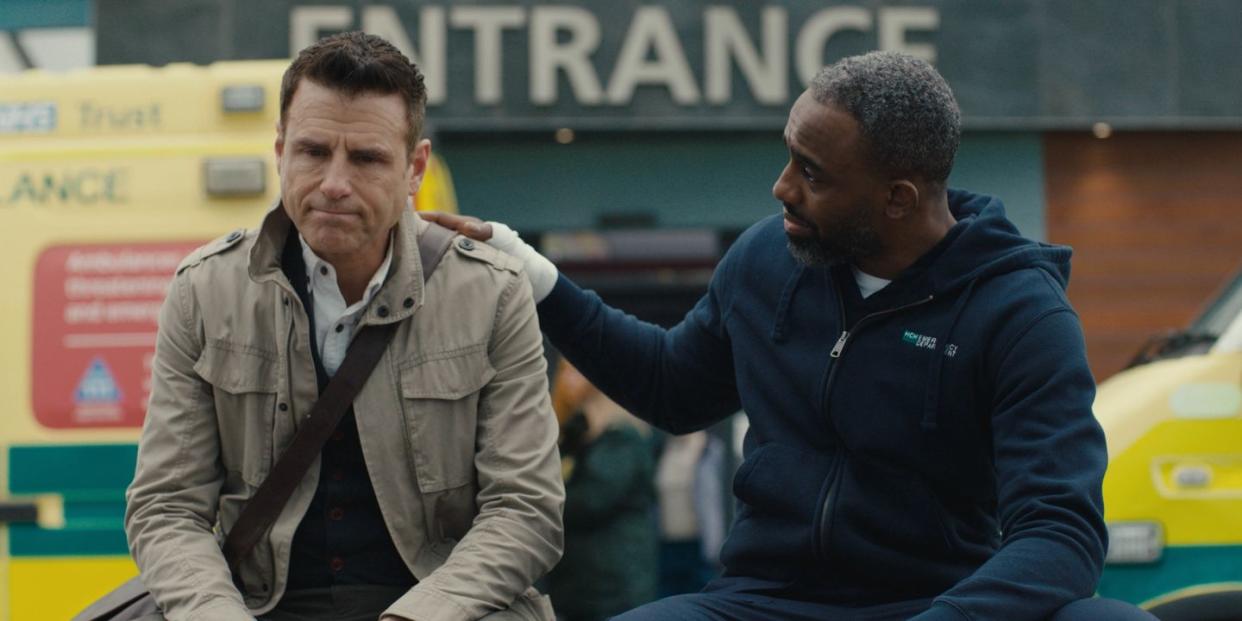
- Oops!Something went wrong.Please try again later.
Casualty spoilers follow.
When news about Holby City's axing broke last year, all eyes immediately fell to its sister show Casualty.
Would it suffer a similar fate? Have medical dramas had their day? Have all soaps and long-running dramas had their day? Or did Holby simply just fall victim to a change in BBC policy, which involved increasing both spending and representation on programming outside of London, and could Casualty's destiny therefore be entirely different?
While the subsequent axing of popular Australian soap Neighbours appeared to give weight to some of those former theories, various BBC statements came through to support the latter. But yet, seven months on from Holby's final episode, uncertainty over Casualty's future feels more apparent than ever.
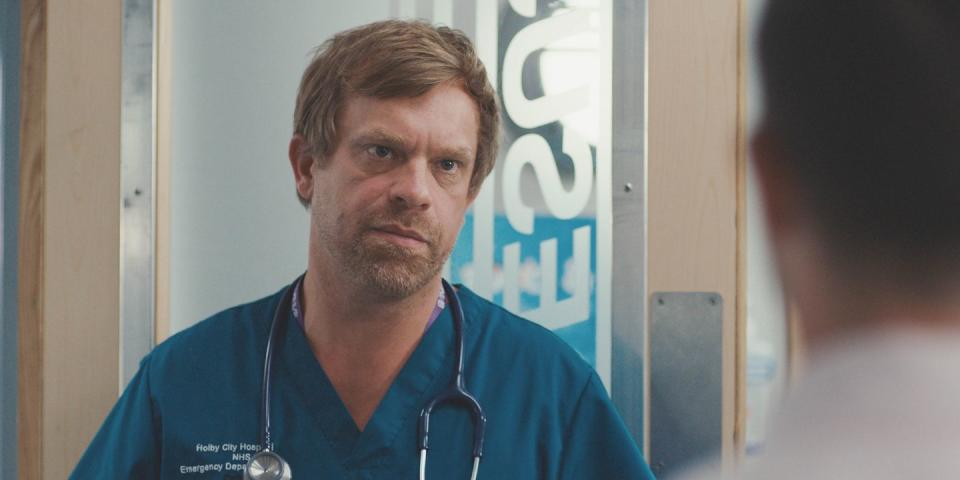
The regional identity of both BBC medical dramas always made them more vulnerable in the face of changing television landscapes. As viewers know, Casualty and Holby were sibling shows (Casualty being the older, more institutional of the two), sharing the same universe which is set in a fictional county in south-west England.
Both were set in the same hospital, and shared some of the same characters. However, Casualty is filmed in Cardiff (having moved there from Bristol back in 2012), while Holby was filmed in Elstree.
Explaining Holby's axing last year, Piers Wenger, who's Director of BBC Drama, said: "It was an incredibly difficult decision. But you know, when [Director-General of the BBC] Tim Davie gave us some very clear direction on wanting to make more drama across the UK, and we knew we had EastEnders, Holby and Casualty – all of which are based in the South, albeit Casualty in Wales – we knew we needed to better reflect life across the whole of England, which is why we've chosen to bring back Waterloo Road."
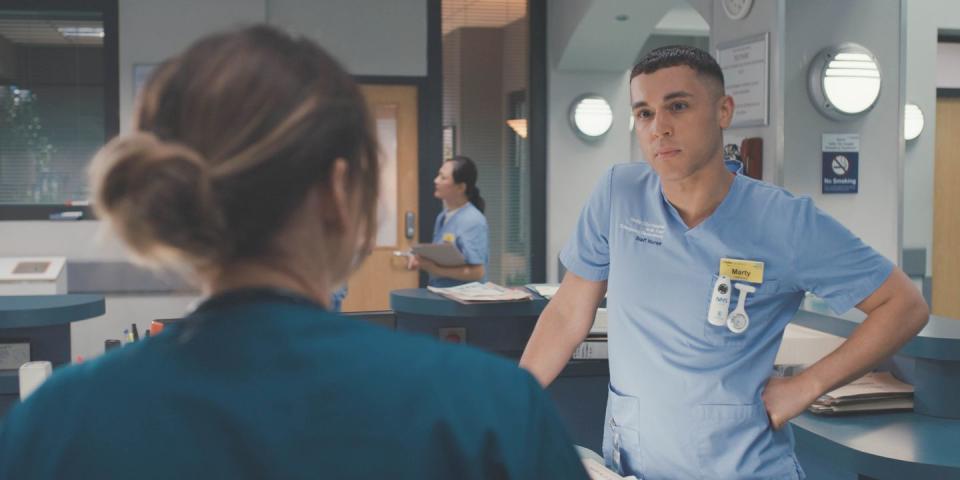
In the wake of this, the BBC vowed to still keep Casualty afloat, but for how much longer?
We're not going to beat around the bush – Casualty is not what it used to be. In a couple of months' time, the hospital drama – which we have steadfastly championed in the past – will wrap up one of the most turbulent years in its 36-year history. Fans are concerned, and we'd be lying if we said we weren't, too.
Ignoring unprecedented challenges in 2020 due to COVID, Casualty's gradual decline is largely a byproduct of unceasing schedule changes – which are contributing to a descent in quality and momentum. This year alone, viewers have been lucky if the show has an unbroken run of more than three weeks straight, with various consolatory double-billings suggesting that the episodes are there, but the schedule availability for them is not.
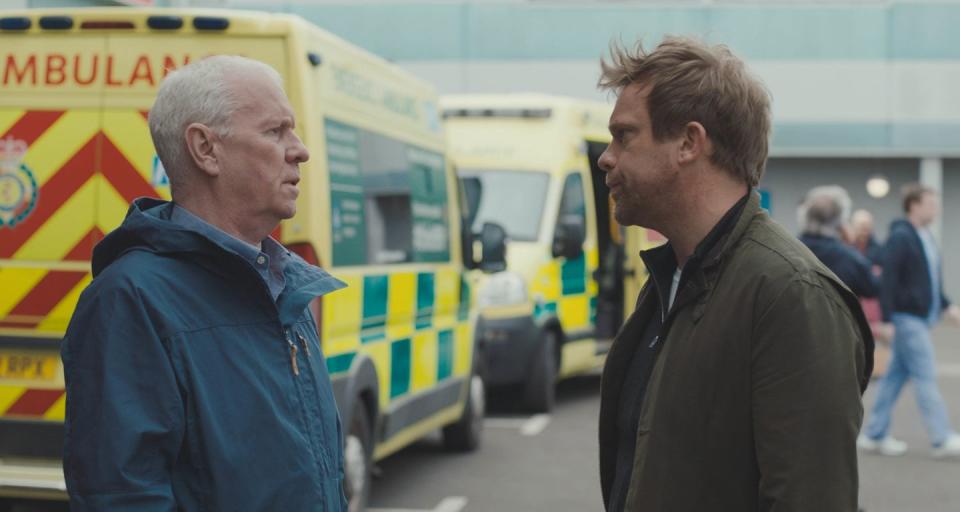
Casualty has always been commissioned to broadcast a certain amount of episodes per year; something which the broadcaster is clearly struggling to uphold in the fourth decade of its run. In 2004, the rising popularity of the show resulted in a switch from a traditional seasonal format to an almost year-round production and transmission. Each series approximately lasts between 44 and 48 episodes, although this structure is vastly becoming obsolete given a lack of lengthy break between the series finale and series opening.
With the exception of live sports coverage, the Eurovision final, and a handful of other annual occasions, Casualty's regular Saturday night slot has always remained largely unchanged and dependable (forgetting a brief period between the late '80s and early '90s where it was switched to Fridays). Until now.
It's not just fans who are being let down here, either – those responsible for making the show are, too. The current ensemble cast features some exceptional talent, but they can only play with the cards they are dealt. The same goes for behind the scenes, where the story ideas appear to be there on paper, but are not getting the chance to properly lift off the page.
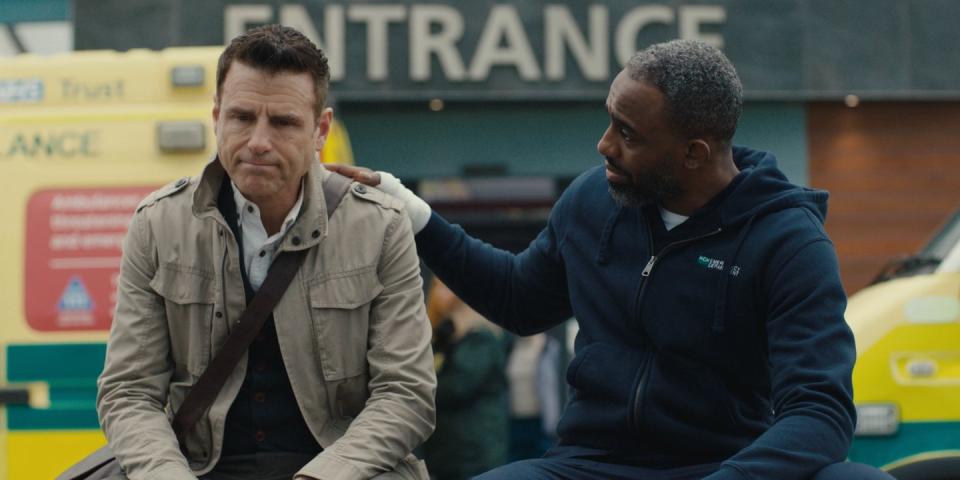
David's game-changing storyline, which gave us some outstanding performances from Jason Durr, was arguably the strongest in a long time, but succumbed to various pacing problems (some within the BBC's control, and some not), meaning it failed to land in the way it should have. The ongoing Robyn, Marty and Adi arc would have also benefitted from much more momentum.
The current series, which kicked off back in August, offers great potential – with a renewed focus on the NHS crisis reminding us all what programme we are watching, and why. But a palpable lack of publicity, caused largely by a steep decline in press opportunities with the cast, is contributing to a lack of noise around the show at a time it needs it the most.
Sadly, there's no silver lining in sight here. Casualty aired last weekend Saturday, October 8 and is now taking yet another extended break, provisionally back on air early next month.
This weekend, entertainment shows Blankety Blank and I Can See Your Voice will be filling up the post-Strictly schedules instead, and it's the same story the following Saturday (October 22). Casualty is increasingly starting to feel like an inconvenience, with its arbitrary airings a symptom of that.
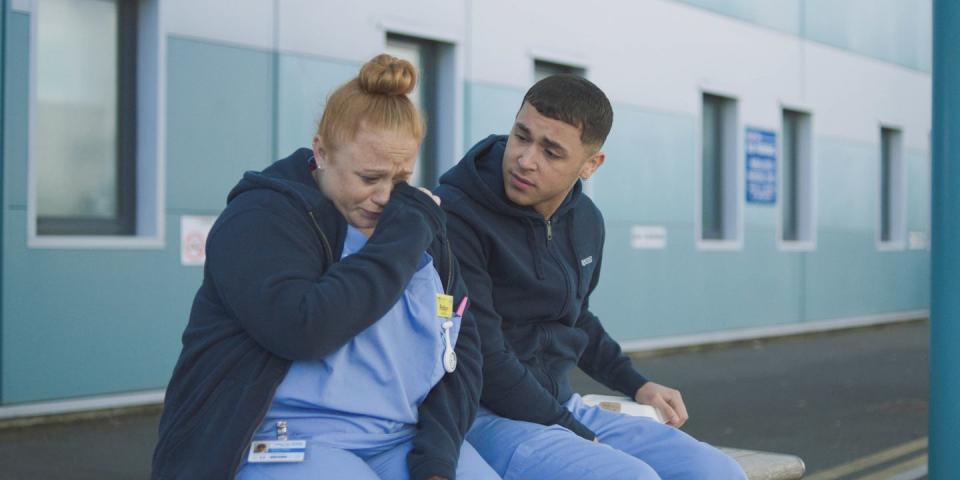
This is actually a problem that extends beyond Casualty as well. In recent years, it's felt like the BBC simply doesn't have the same desire to protect its soaps and serial dramas in the way that ITV does. EastEnders often falls victim to scheduling changes, albeit not as consistently, but has benefited from a smart scheduling revamp and experimental changes – such as early release episodes during certain sporting events. Initially tried out during Euro 2020 last year, the BBC hailed the experiment as a success, so much so that we expect it to be a recurring theme moving forwards.
Casualty would perhaps benefit from such a change in direction. The episode airing on Saturday, October 1, which saw Robyn collapse in the carpark after a difficult shift, pulled in a consolidated rating of approximately 3 million. Comparatively, Casualty had 3.4 million viewers for the same date last year.
A stratospheric change in audience viewing habits over the years have seen an inevitable increase in the use of catch-up services such as iPlayer. And with the Beeb regularly directing viewers over there for boxsets and first looks at other shows, it seems sensible to give Casualty this same opportunity.
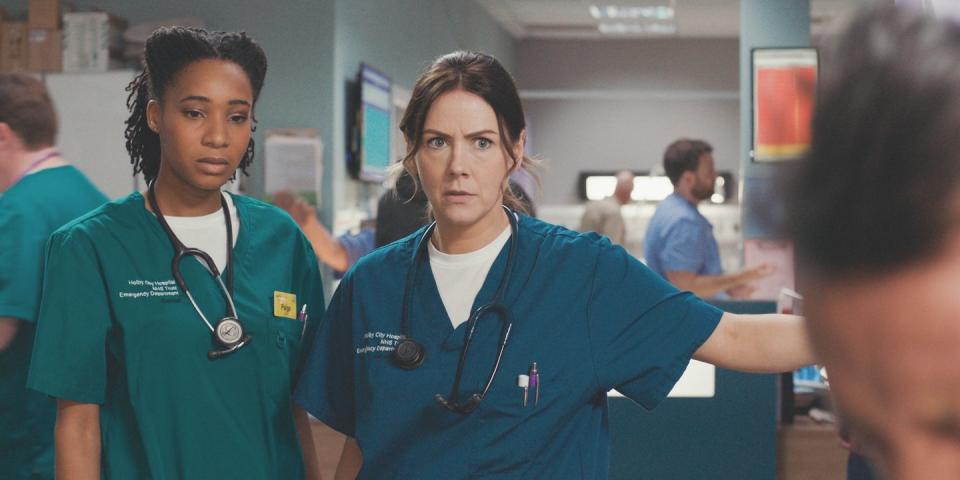
Boosting iPlayer numbers for Casualty could combat the show's declining figures, while giving fans the option to still watch when the usual linear schedules are thrown out of whack. A change to a Friday time slot could also give Casualty a much-needed lifeline in the short-term but there's still a chance history could repeat itself in a few years' time.
Medical shows matter in television history, and always will do. Rooted in NHS realism, Casualty, and Holby too, were and are both decades ahead of the curve in terms of diverse casting and storylines – and have provided countless opportunities for rising stars.
When Casualty is good, it's really, really good. And we can only hope it's not time to say goodbye just yet.
Casualty airs on Saturday nights on BBC One, and streams on BBC iPlayer.
Read more Casualty spoilers on our dedicated homepage
You Might Also Like

